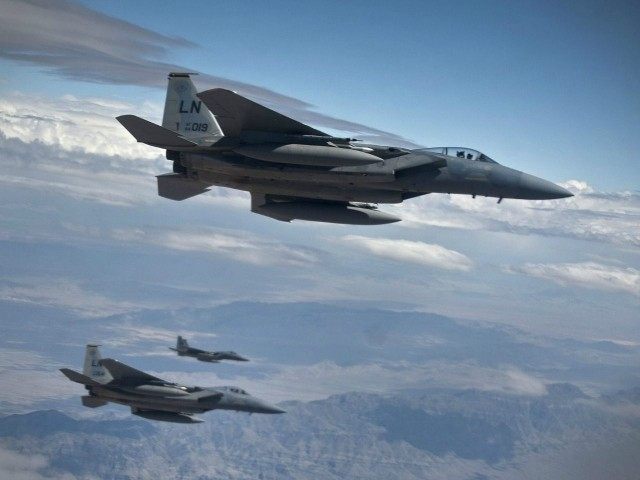JERUSALEM – It was only a matter of time before Tuesday’s incident in which NATO member Turkey shot down a Russian-made warplane near the Syrian border.
The skies in and around Syria are increasingly used by multiple countries with conflicting interests in the years-long insurgency targeting the regime of Syrian President Bashar al-Assad.
Immediate questions need to be raised about the likelihood of another such incident occurring in the future. Next time, it could involve the U.S. and Russia.
The opposing narratives of Tuesday’s incident are instructive. The Turkish military claims it warned the Russian-made SU-24 warplane 10 times in five minutes that it was violating Turkish airspace. Russia claims it can prove its aircraft was flying over Syria.
Russia says it is targeting the Islamic State in Syria, but the U.S. has repeatedly accused Moscow of bombing U.S.-backed rebels opposed to the Assad regime, which is allied with Russia and Iran.
While Russia has shown some interest in coordinating with the U.S., the fact remains that both countries continue to operate in Syrian skies without fully disclosing their plans and flight paths beforehand.
Russia’s recent deployment to Syria reportedly involved the shipment of an advanced anti-aircraft missile system. Moscow reinforces the Syrian airforce and has the military capability to fully control Syrian skies.
Assad’s airforce certainly does not coordinate with the U.S. or several other countries acting in Syria. These have included Turkey and Israel. The latter usually conducts air raids targeting weapons shipments meant for the Hezbollah terrorist organization.
U.S. allies Jordan, Saudi Arabia, and even Canada have also bombed targets in Syria.
The U.S. has downplayed concerns over the prospect of an international incident.
“While there’s always the potential for miscalculation and for accidents, it’s important to remember that there is a lot of square miles in Syria,” said Col. Steve Warren, spokesman for the U.S. military headquarters in Baghda. “Most of these strikes are two or four aircraft participating. They fly in, they strike, they depart.”
But what happens if Russia mistakenly downs a U.S. aircraft or vice versa? Such a situation has the potential to explode, especially given the already tense relationship between the two countries.
What if Russia mistakenly views as a threat incoming U.S. aircraft operating near Moscow’s naval fleet in the Mediterranean?
What if Turkey is mistakenly attacked and Ankara claims it was intentional? What if Turkey wants to enact NATO’s mutual self-defense clause?
It may be time to address these uncomfortable scenarios before it’s too late.

COMMENTS
Please let us know if you're having issues with commenting.